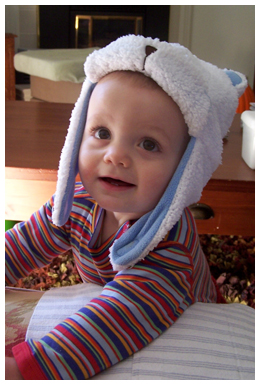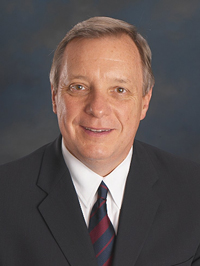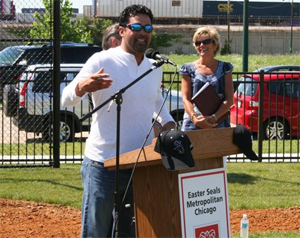School fights family over autism assistance dog
by Beth Finke
The Associated Press reports that an Illinois family wants their 6-year-old son, who has autism, to be able to bring his dog along to school this year. The family said the dog would help with the transition to a new place and would also help keep him safe from traffic and other dangers. Service dogs are allowed in the boy’s school, but opponents claim this dog is just a source of comfort rather than a true service dog.
Bark Magazine responded to the AP story with a blog post:
What constitutes a service dog? Is it the old-fashioned definition of being a guide dog for a blind person or are we as a society ready to wholeheartedly expand our definition to dogs who alert people with diabetes or epilepsy to impending problems, dogs who provide people with emotional stability that they cannot achieve on their own, dogs who support people physically in case of loss of balance, dogs who protect impulsive children from running towards the road or other perilous situations and dogs who allow children to handle school when they might otherwise be incapable of doing so?
How do we distinguish between service dogs and dogs who are merely helpful but not in any official capacity?
A post I wrote here last year spelled out the legal way to distinguish service animals from companion animals:
To qualify as a service animal under the ADA, a dog must be “partnered with a person with a disability and individually trained to do work or perform tasks for the benefit of that person.”
A judge’s order in July allowed the dog to accompany the boy when school started last week, but an official trial is scheduled for November, 2009 to determine if the dog can continue doing so. Courts will decide whether this boy’s dog performs tasks for him or simply acts as his companion.







 Earlier this year
Earlier this year  On World Autism Day this year (April 2), Sen. Richard J. Durbin (D-IL), introduced a bill that would increase vocational opportunities for people on the autism spectrum. The bill, called the
On World Autism Day this year (April 2), Sen. Richard J. Durbin (D-IL), introduced a bill that would increase vocational opportunities for people on the autism spectrum. The bill, called the  The reunion with Ozzie was great, he recognized me right away! It would be greater if the White Sox were on a roll, though. I grew up on Chicago’s south side and have always been a White Sox fan, and while I am writing this they are in second place. No matter what happens the rest of the season, I will always be a fan of this
The reunion with Ozzie was great, he recognized me right away! It would be greater if the White Sox were on a roll, though. I grew up on Chicago’s south side and have always been a White Sox fan, and while I am writing this they are in second place. No matter what happens the rest of the season, I will always be a fan of this